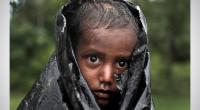 With several deaths reported from India in confirmed and suspected cases of the brain-damaging virus Nipah, officials in Bangladesh emphasise on precautionary measures.
With several deaths reported from India in confirmed and suspected cases of the brain-damaging virus Nipah, officials in Bangladesh emphasise on precautionary measures.
As many as 12 people have been killed in the southern Indian state of Kerala, but the country’s government describe the outbreak as minor.
There is no vaccine for the fruit bat-borne virus, which has a mortality rate of 70 percent; the only treatment is supportive care.
Nipah is among of 10 priority diseases that the World Health Organisation has identified as potentials for the next major outbreak.
“In Bangladesh, we have seen people infected by consuming raw date sap. But we suspect the case in India’s Kerala may have been from the seasonal fruits,” says ASM Alamgir of the Institute of Epidemiology, Disease Control and Research (IEDCR).
“We also have the same risk, but any case of being infected in Nipah from consuming seasonal fruits has not been reported in Bangladesh. But we are alert,” the senior scientific officer of the government’s disease monitoring arm told Bangla Tribune.
Professor ABM Abdullah of the Bangabandhu Sheikh Mujib Medical University stresses on screening of people entering Bangladesh from countries with confirmed cases of Nipah.
“Medical screening of incoming people is imperative,” said the Internal Medicine professor before adding that any case is yet to be reported from Bangladesh.
With an outbreak reported from the neighbouring country, the government is yet to issue any special instruction.
“Nipah-effected patients have to be treated under special care. We are yet to get any directive over the issue from the health directorate,” Uttam Kumar Barua, director of the Suhrawardy Medical College Hospital told Bangla Tribune.
Experts say, boiling date palm sap before consuming, avoid eating fruits contaminated by animal can prevent the virus from infecting
What is Nipah virus?
Nipah virus (NiV) infection is an emerging disease, transmitted to humans from animals. The natural host of the virus are fruit bats.
The infection was first identified in 1999 during an outbreak of encephalitis and respiratory illness among pig farmers and people with close contact with pigs in Malaysia and Singapore.
Nearly 300 human cases with over 100 deaths were reported in that outbreak. In order to stop it, more than a million pigs were euthanized, causing tremendous trade loss for Malaysia.
Nipah virus infection can be prevented by avoiding exposure to sick pigs and bats in endemic areas and not drinking raw date palm sap.
Symptoms of the infection include fever, headache, drowsiness, respiratory illness, disorientation and mental confusion. These signs and symptoms can progress to coma within 24-48 hours.
There is no vaccine for either humans or animals.
Related Stories
US biotechs to speed work on Nipah vaccine
Deaths reported in India from Nipah virus


